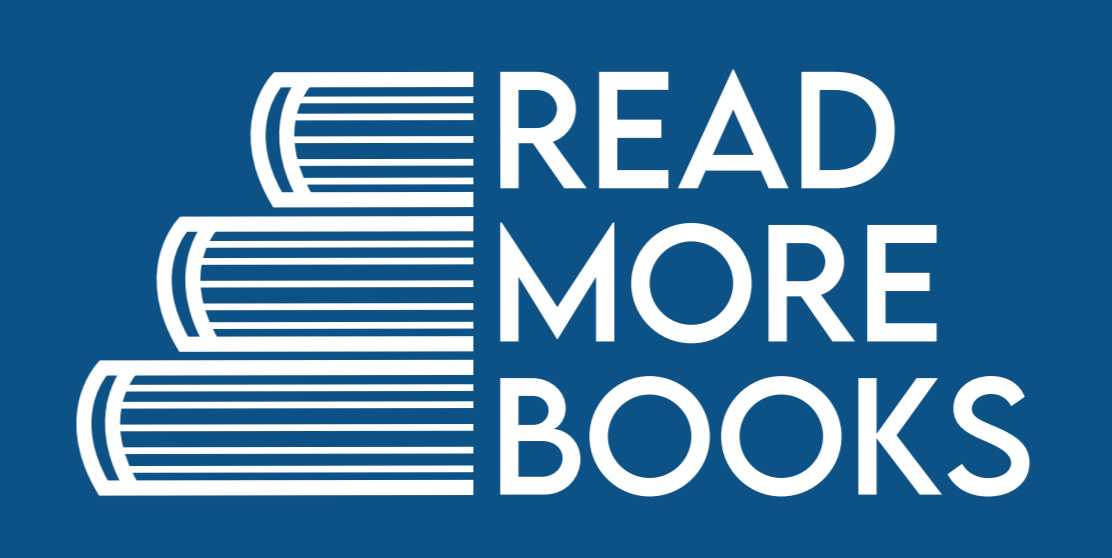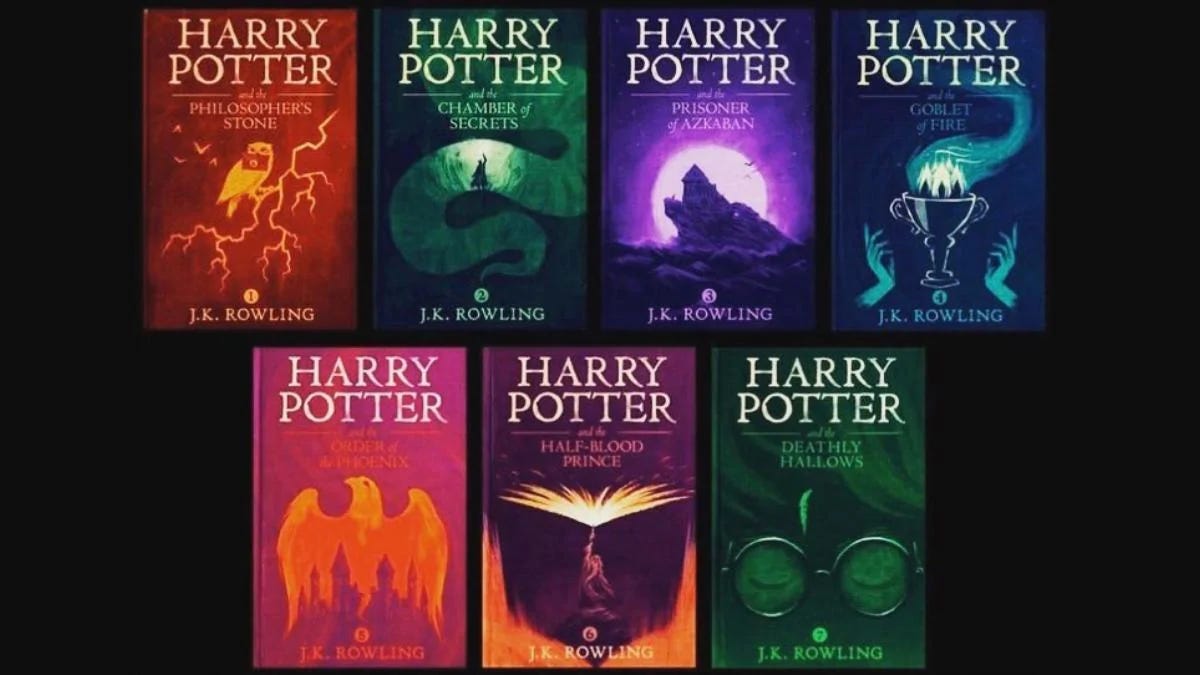What to Read Next (No. 184): Harry Potter and finding my reading tastes
Until last week, I had been with the Art of Manliness for nine years. For about half that time, I’ve been receiving handfuls of books, on a weekly basis, from publishers looking to get authors onto the AoM podcast. I get at least a few per week, sometimes double or triple that. So for the better part of a decade my reading tastes were largely defined by two things:
1) What I thought Art of Manliness readers would enjoy + what I could turn into an article.
2) What landed on my doorstep from eager publicists.
Of course not every book I read was chosen that way, but it was always in the back of my head and informed my reading choices to a degree that I’m probably even now not fully aware of.
So now that my time with AoM has come to close, I’m being forced to confront the very core of my reading life: What do I actually like?! My reading log is filled with mostly non-fiction by mostly male authors. It’s been a heavily masculine decade.
Next year, then, my primary reading project will be to read women authors. Classics, modern greats, non-fic, fiction, poetry—all of it. In 2022, I want to give books the chance to do what they’re best at: expand my worldview and give me a bit of perspective about the diverse and varied experience of womanhood. (I’m working on a full plan of attack with my buddy Kyle.)
I also want to make sure I’m reading great books rather than just the new stuff that happens to hit my doorstep at no charge. It’s easy to pick those up without another thought—they’re simply there. Why go to the library when I have literally hundreds of unread books in my office? But that shouldn’t be the rubric for what I read. There are only so many books for this lifetime.
I was quite poignantly recently reminded of this in a Twitter conversation about books with author/speaker Laura Vanderkam, who pointed out something simple and yet profound:
“You are only going to read so many books. 50 a year for 50 years is 2500. That is it. Worth asking if any title is worth being in that.”
I read about 100 books per year—that’s been steady for about a decade so I don’t mind using that as my estimated annual number. So for me, it might be 5,000 rather than 2,500. I know that number is plenty big, but still. That’s a pretty limited number of books given the insanely vast selection that only grows and grows with each passing year.
So the rubric for choosing a book—for sticking with a book that I’ve started—should be along the lines of: Does this fit into that 5,000? That certainly doesn’t mean that every book needs to be a classic or fit into the realm of “literature” (pronounced as snootily as you can do it); I mostly just want to make sure I’m reading books that I love. Drivel or award-worthy, am I excited to read what I’m reading? (It’s why I don’t write about the books I don’t enjoy—I only want to bring you the books that are worthy!)
These ideas aren’t fully formed yet, but I’m excited to figure out what my tastes really are here in the coming weeks and months.
One series of books I know I love and is even worth re-reading a handful of times? Harry Potter.
Harry Potter by JK Rowling
Let’s talk just a little bit about Harry Potter—that immortal series which broke a number of sales and revenue records that still stand today. I read the first three books when I was an early teen; a box set of those first three were gifted to me by a relative and I devoured ‘em. Thereafter, I read the new ones as soon as they came out, only after re-reading the entire series again. So by the time the seventh book came out, Deathly Hallows, I had already read the series five times or so. (Fun fact: When I go to that Amazon page, it shows that I ordered it in early July 2007; it must have been one of the first Amazon purchases I made with my own account.) I read them all again in 2014, and am midway through the third book once more.
Rowling’s brilliance does not cease to amaze me. There are times where the story feels a little too easy, but it’s a series aimed at kids/teens. It makes sense that the plotting isn’t as advanced as something like Lord of the Rings.
In book one, I had forgotten how much information Rowling gives us in the span of just over 300 pages. Harry finds out he’s a wizard and in the next 100 pages or so, Rowling builds out much of the foundations of the magical world, introducing a dozen of the best characters in literature. It never feels overwhelming though, and Rowling simply builds out that magical world more and more with each book. The series is just soooo good. These seven books are absolutely worthy of dozens of those 5,000 spots on my lifetime list; I imagine I’ll keep reading ‘em once every decade or so.
If you don’t think you’d enjoy it, I urge you to give it a shot. I’ve talked with a number of people who didn’t think there was a snowball’s chance in hell of their liking the books, only to quickly find themselves addicted and getting through the whole series in a matter of weeks.
Okay, that’s enough for now. Thanks so much for subscribing; I deeply appreciate the support!
-Jeremy



Hey, Jeremy. . .First. . .thank you for your service to AOM. . .I know what you mean about being "forced" into books. For six years, I served on the IMPAC Dublin Literary Award committee at Cleveland Public Library. All we read was literary fiction. I had no time for non-fiction at all. We had "agreed upon" books that we all read and then we'd bring a couple of books we read for further suggestions as new "agreed upon" books. Many of the books I ended up reading required a full bottle of whiskey and a loaded gun next to me. . . such is literary fiction at times. It's mainly when I stopped reading reviews. Now, free from that, I pretty much divide equally between fiction and non-fiction--history, politics, biography. Despite multiple friends raving about Harry Potter, all adults, I have not dived in yet. It is a series I am promising myself to read next year after I finish the Caro LBJ books. My goal this year is around sixty-six books or 20,000 pages, whichever comes first. I have also found myself this year "giving up on books." Not too many, but my life is too short to not look forward to opening up a book when I'm on page 97.